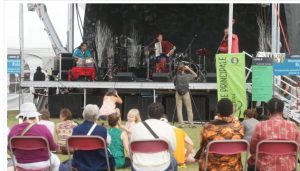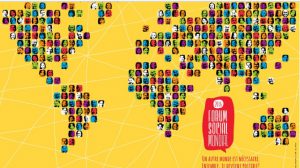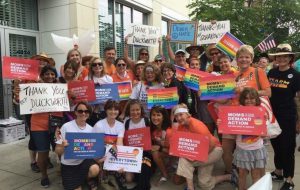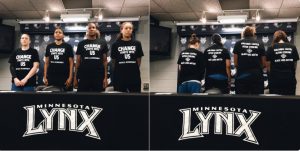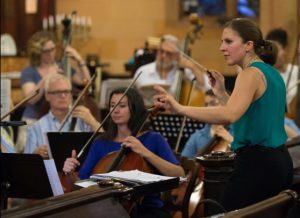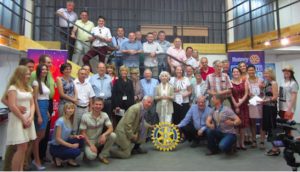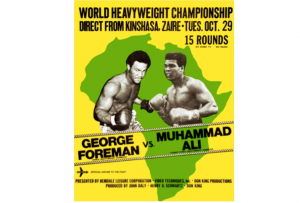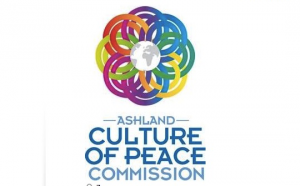DISARMAMENT & SECURITY .
A letter published by Peace Action
To President Barack Obama, May 23, 2016
Dear Mr. President,
We were happy to learn of your plans to be the first sitting president of the United States to visit Hiroshima this week, after the G-7 economic summit in Japan. Many of us have been to Hiroshima and Nagasaki and found it a profound, life-changing experience, as did Secretary of State John Kerry on his recent visit.

Click on photo to enlarge
In particular, meeting and hearing the personal stories of A-bomb survivors, Hibakusha, has made a unique impact on our work for global peace and disarmament. Learning of the suffering of the Hibakusha, but also their wisdom, their awe-inspiring sense of humanity, and steadfast advocacy of nuclear abolition so the horror they experienced can never happen again to other human beings, is a precious gift that cannot help but strengthen anyone’s resolve to dispose of the nuclear menace.
Your 2009 Prague speech calling for a world free of nuclear weapons inspired hope around the world, and the New START pact with Russia, historic nuclear agreement with Iran and securing and reducing stocks of nuclear weapons-grade material globally have been significant achievements.
Yet, with more than 15,000 nuclear weapons (93% held by the U.S. and Russia) still threatening all the peoples of the planet, much more needs to be done. We believe you can still offer crucial leadership in your remaining time in office to move more boldly toward a world without nuclear weapons.
In this light, we strongly urge you to honor your promise in Prague to work for a nuclear weapons-free world by:
Meeting with all Hibakusha who are able to attend;
Announcing the end of U.S. plans to spend $1 trillion for the new generation of nuclear weapons and their delivery systems;
Reinvigorating nuclear disarmament negotiations to go beyond New START by announcing the unilateral reduction of the deployed U.S. arsenal to 1,000 nuclear weapons or fewer;
Calling on Russia to join with the United States in convening the “good faith negotiations” required by the Nuclear Non-Proliferation Treaty for the complete elimination of the world’s nuclear arsenals;
Reconsidering your refusal to apologize or discuss the history surrounding the A-bombings, which even President Eisenhower, Generals MacArthur, King, Arnold, and LeMay and Admirals Leahy and Nimitz stated were not necessary to end the war.
Sincerely,
Gar Alperowitz, Professor of Political Economy, University of Maryland
Christian Appy, Professor of History at the University of Massachusetts,
Amherst, author of American Reckoning: The Vietnam War and Our National Identity
Colin Archer, Secretary-General, International Peace Bureau
Charles K. Armstrong, Professor of History, Columbia University
Medea Benjamin, Co-founder, CODE PINK, Women for Peace and Global Exchange
Phyllis Bennis, Fellow of the Institute for Policy Studies
Herbert Bix, Professor of History, State University of New York, Binghamton
Norman Birnbaum, University Professor Emeritus, Georgetown University Law Center
Reiner Braun, Co-President, International Peace Bureau
Philip Brenner, Professor of International Relations and Director of the Graduate Program in US Foreign Policy and National Security, American University
Jacqueline Cabasso, Executive Director, Western States Legal Foundation; National Co-convener, United for Peace and Justice
James Carroll, Author of An American Requiem
Noam Chomsky, Professor (emeritus), Massachusetts Institute of Technology
David Cortright, Director of Policy Studies, Kroc Institute for International Peace Studies, University of Notre Dame and former Executive Director, SANE
Frank Costigliola, Board of Trustees Distinguished Professor, niversity of Connecticut
Bruce Cumings, Professor of History, University of Chicago
Alexis Dudden, Professor of History, University of Connecticut
Carolyn Eisenberg, Professor of U.S. Diplomatic History, Hofstra University
Daniel Ellsberg, Former State and Defense Department official
John Feffer, Director, Foreign Policy In Focus, Institute for Policy Studies
Gordon Fellman, Professor of Sociology and Peace Studies, Brandeis University.
Bill Fletcher, Jr., Talk Show Host, Writer & Activist.
Norma Field, professor emerita, University of Chicago
Carolyn Forché, University Professor, Georgetown University
Max Paul Friedman, Professor of History, American University.
Bruce Gagnon, Coordinator Global Network Against Weapons and Nuclear Power in Space.
(letter continued in right column)
Can we abolish all nuclear weapons?
(letter continued from left column)
Lloyd Gardner, Professor of History Emeritus, Rutgers University, author Architects of Illusion and The Road to Baghdad.
Irene Gendzier Prof. Emeritus, Department of of History, Boston University
Joseph Gerson, Director, American Friends Service Committee Peace & Economic Security Program, author of With Hiroshima Eyes and Empire and the Bomb
Todd Gitlin, Professor of Sociology, Columbia University
Andrew Gordon. Professor of History, Harvard University
John Hallam, Human Survival Project, People for Nuclear Disarmament, Australia
Melvin Hardy, Heiwa Peace Committee, Washington, DC
Laura Hein, Professor of History, Northwestern University
Martin Hellman, Member, US National Academies of Sciences, Engineering, and Medicine Professor Emeritus of Electrical Engineering, Stanford University
Kate Hudson, General Secretary, Campaign for Nuclear Disarmament (UK)
Paul Joseph, Professor of Sociology, Tufts University
Louis Kampf, Professor of Humanities Emeritus MIT
Michael Kazin, Professor of History, Georgetown University
Asaf Kfoury, Professor of Mathematics and Computer Science, Boston University
Peter King, Honorary Associate, Government & International Relations School of Social and Political Sciences, The University of Sydney, NSW
David Krieger, President Nuclear Age Peace Foundation
Peter Kuznick, Professor of History and Director of the Nuclear Studies Institute at American University, is author of Beyond the Laboratory
John W. Lamperti, Professor of Mathematics Emeritus, Dartmouth College
Steven Leeper, Co-founder PEACE Institute, Former Chairman, Hiroshima Peace Culture Foundation
Robert Jay Lifton, MD, Lecturer in Psychiatry Columbia University, Distinguished Professor Emeritus, The City University of New York
Elaine Tyler May, Regents Professor, University of Minnesota, Author of Homeward Bound: American Families in the Cold War Era
Kevin Martin, President, Peace Action and Peace Action Education Fund
Ray McGovern, Veterans For Peace, Former Head of CIA Soviet Desk and Presidential Daily Briefer
David McReynolds, Former Chair, War Resister International
Zia Mian, Professor, Program on Science and Global Security, Princeton University
Tetsuo Najita, Professor of Japanese History, Emeritus, University of Chicago, former president of Association of Asian Studies
Sophie Quinn-Judge, Retired Professor, Center for Vietnamese Philosophy, Culture and Society, Temple University
Steve Rabson, Professor Emeritus of East Asian Studies, Brown University, Veteran, United States Army
Betty Reardon, Founding Director Emeritus of the International Institute on Peace Education, Teachers College, Columbia University
Terry Rockefeller, Founding Member, September 11 Families for Peaceful Tomorrows,
David Rothauser Filmmaker, Memory Productions, producer of “Hibakusha, Our Life to Live” and “Article 9 Comes to America
James C. Scott, Professor of Political Science and Anthropology, Yale University, ex-President of the Association of Asian Studies
Peter Dale Scott, Professor of English Emeritus, University of California, Berkleley and author of American War Machine
Mark Selden, Senior Research Associate Cornell University, editor, Asia-Pacific Journal, coauthor, The Atomic Bomb: Voices From Hiroshima and Nagasaki
Martin Sherwin, Professor of History, George Mason University, Pulitzer Prize for American Prometheus
John Steinbach, Hiroshima Nagasaki Committee
Oliver Stone, Academy Award-winning writer and director
David Swanson, director of World Beyond War
Max Tegmark, Professor of Physics, Massachusetts Institute of Technology; Founder, Future of Life Institute
Ellen Thomas, Proposition One Campaign Executive Director, Co-Chair, Women’s International League for Peace and Freedom (US) Disarm/End Wars Issue Committee
Michael True, Emeritus Professor, Assumption College, is co-founder of the Center for Nonviolent Solutions
David Vine, Professor, Department of Sociology, American University
Alyn Ware, Global Coordinator, Parliamentarians for Nuclear Non-proliferation and Disarmament 2009 Laureate, Right Livelihood Award
Dave Webb, Chair, Campaign for Nuclear Disarmament (UK)
Jon Weiner, Professor Emeritus of History, University of California Irvine
Lawrence Wittner, Professor of History emeritus, SUNY/Albany
Col. Ann Wright, US Army Reserved (Ret.) & former US diplomat
Marilyn Young, Professor of History, New York University
Stephen Zunes, Professor of Politics & Coordinator of Middle Eastern Studies, University of San Francisco

